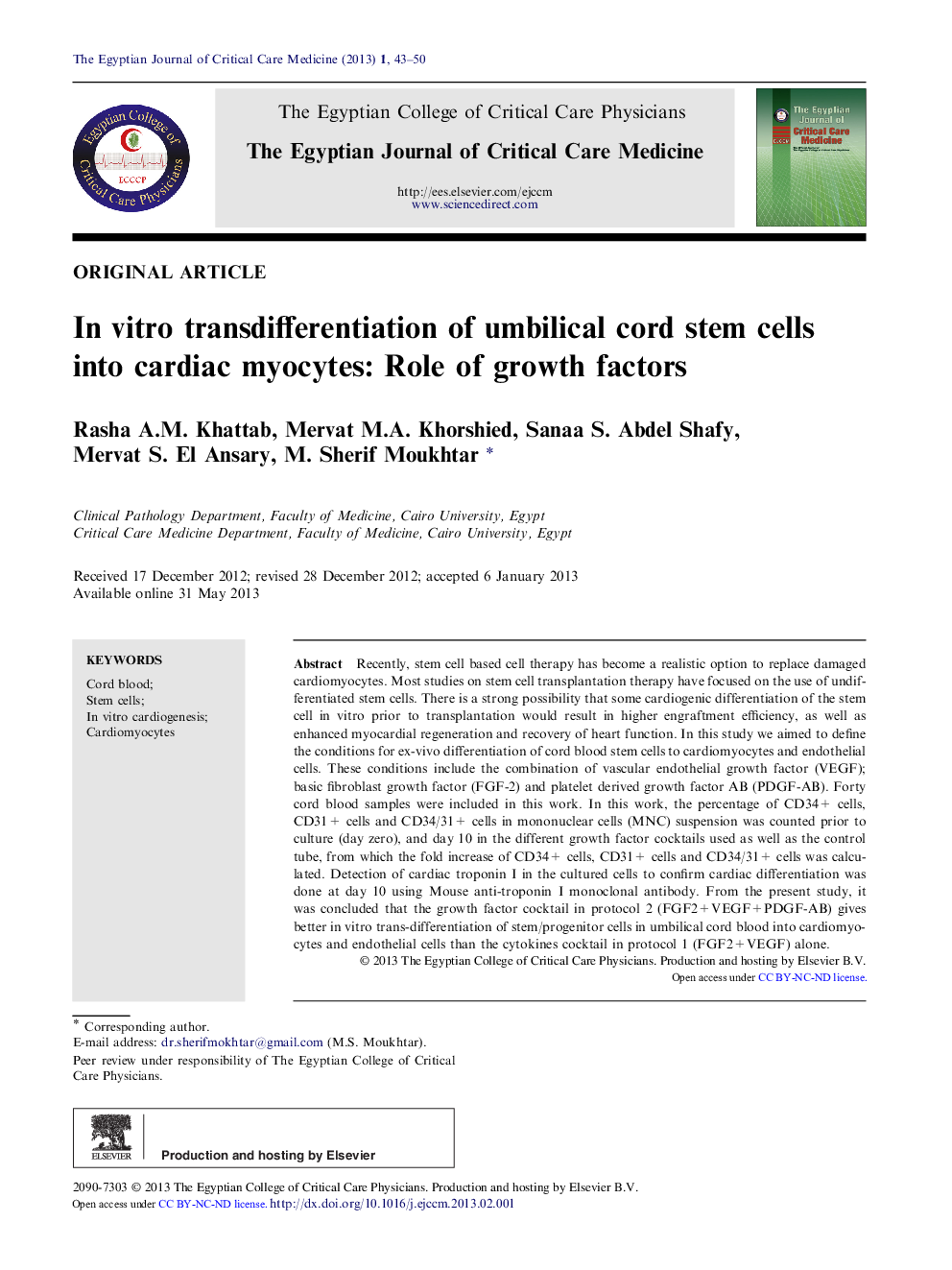| Article ID | Journal | Published Year | Pages | File Type |
|---|---|---|---|---|
| 2910912 | The Egyptian Journal of Critical Care Medicine | 2013 | 8 Pages |
Recently, stem cell based cell therapy has become a realistic option to replace damaged cardiomyocytes. Most studies on stem cell transplantation therapy have focused on the use of undifferentiated stem cells. There is a strong possibility that some cardiogenic differentiation of the stem cell in vitro prior to transplantation would result in higher engraftment efficiency, as well as enhanced myocardial regeneration and recovery of heart function. In this study we aimed to define the conditions for ex-vivo differentiation of cord blood stem cells to cardiomyocytes and endothelial cells. These conditions include the combination of vascular endothelial growth factor (VEGF); basic fibroblast growth factor (FGF-2) and platelet derived growth factor AB (PDGF-AB). Forty cord blood samples were included in this work. In this work, the percentage of CD34+ cells, CD31+ cells and CD34/31+ cells in mononuclear cells (MNC) suspension was counted prior to culture (day zero), and day 10 in the different growth factor cocktails used as well as the control tube, from which the fold increase of CD34+ cells, CD31+ cells and CD34/31+ cells was calculated. Detection of cardiac troponin I in the cultured cells to confirm cardiac differentiation was done at day 10 using Mouse anti-troponin I monoclonal antibody. From the present study, it was concluded that the growth factor cocktail in protocol 2 (FGF2+VEGF+PDGF-AB) gives better in vitro trans-differentiation of stem/progenitor cells in umbilical cord blood into cardiomyocytes and endothelial cells than the cytokines cocktail in protocol 1 (FGF2+VEGF) alone.
